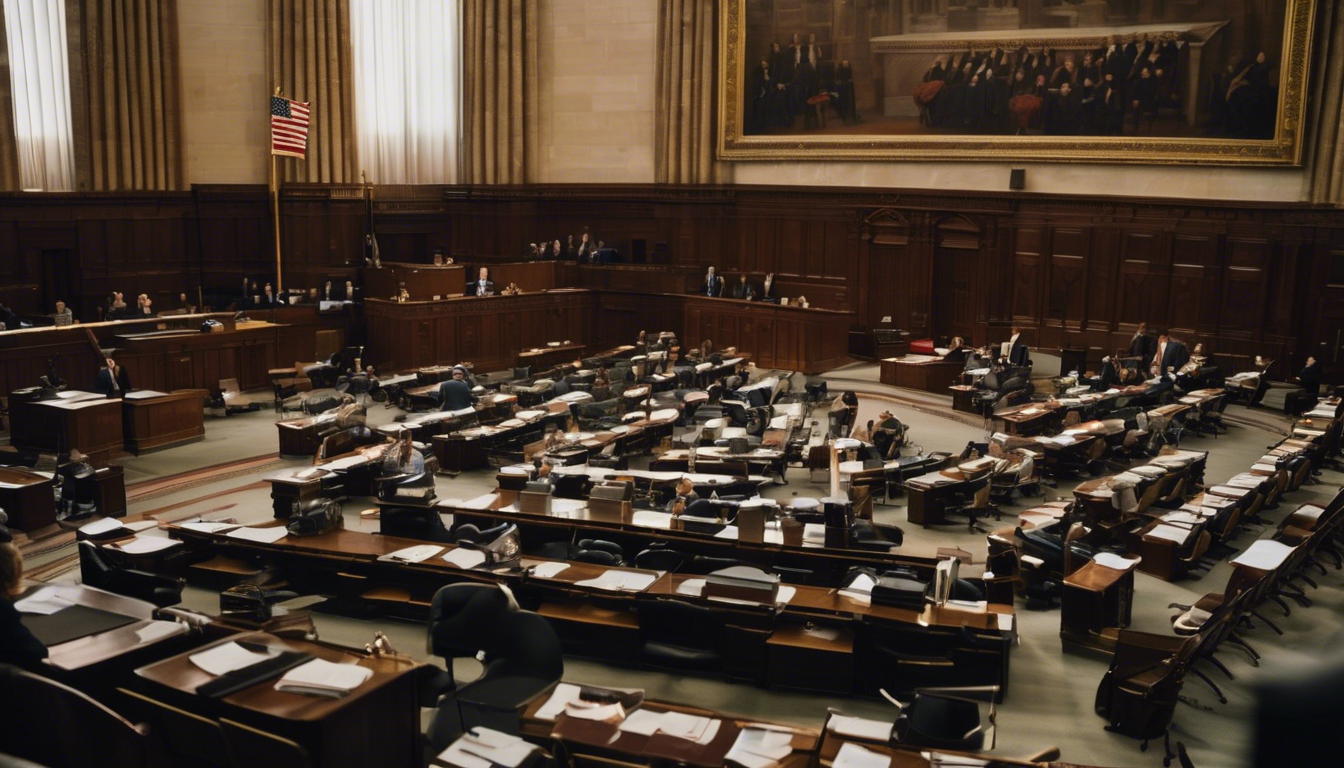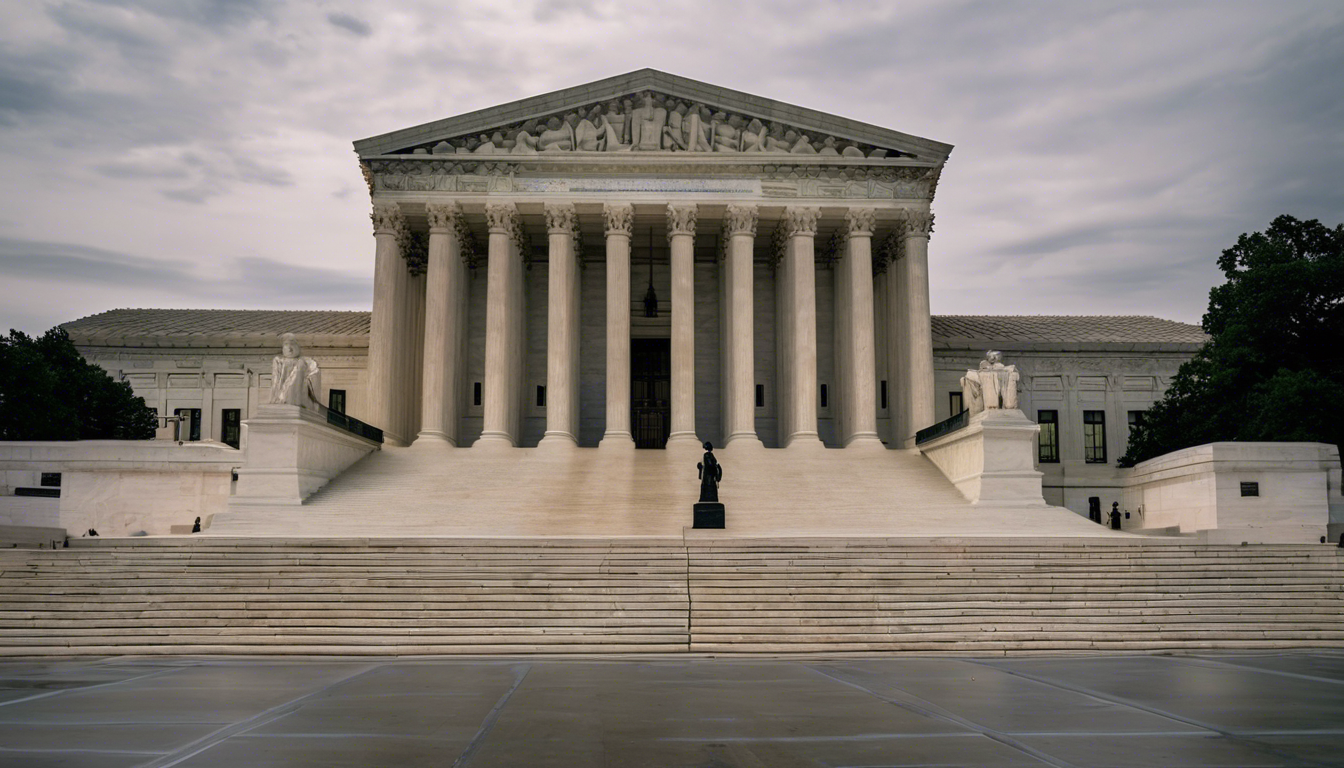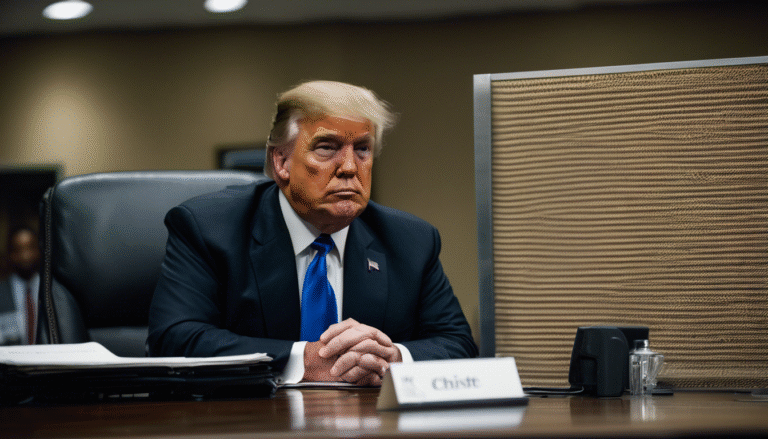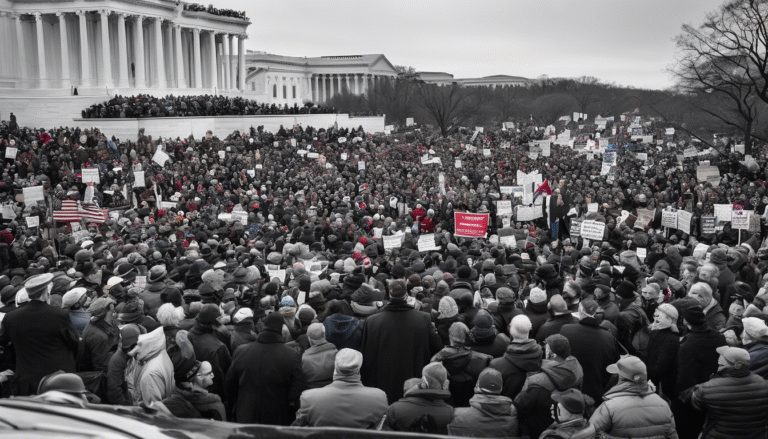
The Trump administration has taken its trade dispute to the Supreme Court, seeking to overturn a recent appeals court ruling that declared the president’s tariffs illegal. This move underscores the legal challenges facing Trump’s trade policies and their impact on international relations and domestic industries.
Background
In an unprecedented step, the Trump administration is appealing to the U.S. Supreme Court, arguing that the president has the legal authority to impose significant tariffs under federal law. The legal challenge centers around the International Emergency Economic Powers Act (IEEPA), which the administration claims grants the president emergency powers to implement tariffs without explicit congressional approval.
Previous rulings have struck down most of the tariffs, citing a lack of constitutional basis in the IEEPA for such actions. These legal setbacks come as global markets remain volatile, with businesses and investors expressing concern over the uncertainty created by the legal battles over the tariffs.
The administration’s stance on tariffs is part of a broader strategy to renegotiate trade deals with various countries, including the EU, Japan, and China. However, the legal challenges threaten to derail these efforts, potentially leading to prolonged periods of economic instability.
Key Developments

The government’s petition to the Supreme Court requests a swift hearing, aiming to resolve the legality of the tariffs by November. This urgency stems from the ongoing trade negotiations and the potential financial impacts on the U.S. treasury and affected businesses.
- The petition argues that tariffs are crucial for securing favorable trade deals.
- The administration warns that uncertainty about tariffs jeopardizes existing agreements.
- Small businesses and consumer advocates have sided with the lower court ruling.
- Potential refunds would financially impact the U.S. treasury.
Supporters of the administration’s position claim that tariffs are necessary tools to protect American industries from unfair competition in the global market. Critics, however, argue that the tariffs violate established constitutional norms, placing undue power in the hands of the executive branch.
Industry/Market Context
Tariffs have significant implications for both exporting industries and consumers within the U.S. and abroad. Domestic producers benefit from reduced competition, while importers face increased costs passed on to consumers. Businesses operating in industries like steel, aluminum, and automobiles have seen fluctuating revenues due to tariff-related uncertainties.
The global economic landscape has been increasingly tense, with major economies like the EU and China taking retaliatory measures against U.S. tariffs. These countermeasures further complicate trade negotiations and heighten risks of economic downturns.
Despite the legal challenges, the Trump administration has maintained its position, emphasizing the importance of protecting American jobs and industries. The outcome of the Supreme Court case will likely influence the future trajectory of trade policies and international relations.
Implications & Risks
The Supreme Court’s decision is anticipated to have far-reaching consequences for global trade dynamics. If the court rules in favor of Trump, it could set a precedent for expanded executive power in implementing tariffs. Conversely, a decision against the administration would affirm existing legal interpretations, potentially invalidating numerous tariffs and affecting trade relations.
Businesses worldwide will be closely watching the court’s ruling, given the substantial economic stakes involved. The uncertainty surrounding tariffs has already led to increased inventory costs, supply chain disruptions, and decreased investor confidence in global markets.
Furthermore, the political fallout from the legal battles over tariffs could impact the upcoming 2025 election cycle. Trade policies have become a central issue in the campaign, with both presidential and congressional candidates positioning themselves on the issue. The clarity brought by a Supreme Court decision could significantly influence voter behavior in key battleground states.
What’s Next

The Supreme Court’s review process typically involves evaluating whether the case meets certain criteria for acceptance. Given the legal implications and public interest, the court is likely to consider the petition seriously. Oral arguments could take place in early 2026, with a decision expected later that year.
Regardless of the outcome, the Trump administration’s appeal highlights the complexities and challenges in modern trade policy and governance. The case has sparked renewed debates about the separation of powers and the limits of executive authority in matters of international commerce.
As the legal battle continues, various stakeholders are preparing for potential changes in trade regulations. For exporters, importers, and consumers, the implications of the Supreme Court’s decision could reshape the business environment and economic outcomes for years to come.
In conclusion, the Trump administration’s Supreme Court appeal underscores the critical legal issues surrounding trade policies. The ruling is poised to influence trade relations, business strategies, and political discourse, making it a pivotal moment in contemporary U.S. history.






